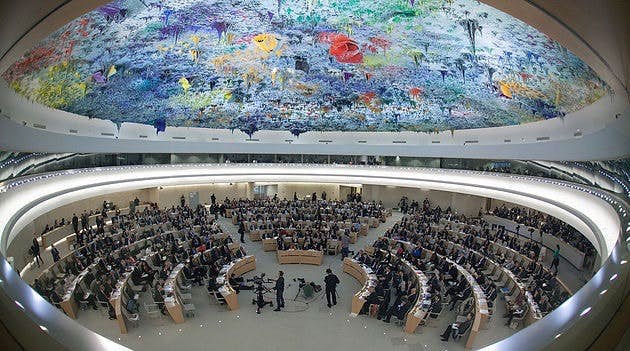Several hours ago, the United Nations General Assembly rejected the Russian government from the 14 members it elected to the UN Human Rights Council. The members newly elected to the council are Croatia, Hungary, Iraq, Saudi Arabia, Egypt, Tunisia, China, Japan, South Africa, Rwanda, Brazil, Cuba, the U.S. and U.K.

“Although numerous authoritarian regimes were elected, including the brutal dictatorships of China, Cuba, Egypt, Rwanda and Saudi Arabia, the fact that the government of Croatia was chosen over Putin’s regime brings immeasurable hope for the council’s future,” said Thor Halvorssen, president of the Human Rights Foundation (HRF). “It appears the world is communicating that a regime that invades neighbors like Ukraine and Georgia, rules others like Chechnya by proxy, and bombs hospitals in Syria, perhaps isn’t suited to the world’s top human rights body. This is a significant and monumental surprise,” he added.
Russia, which received 112 votes, lost its regional seat to Croatia with 114 votes.
On October 6, HRF and UN Watch presented a joint report at the U.N. Correspondents Association that analyzed this year’s candidates. The report assessed the suitability of each candidate based on a two-pronged analysis of selection criteria developed by the U.N. General Assembly in 2006. The report concluded that eight of the 17 candidate states are not qualified to serve at the UNHRC given their poor records of domestic human rights protection and their negative U.N. voting records.
The eight countries identified in the report as unfit are China, Cuba, Egypt, Iraq, Malaysia, Rwanda, Saudi Arabia, and Russia.
HRF urged democratic governments at the U.N. General Assembly not to vote for authoritarian regimes in this election for the 2017-2019 members of the U.N. Human Rights Council (UNHRC).
Human Rights Foundation (HRF) is a nonpartisan nonprofit organization that promotes and protects human rights globally, with a focus on closed societies.
